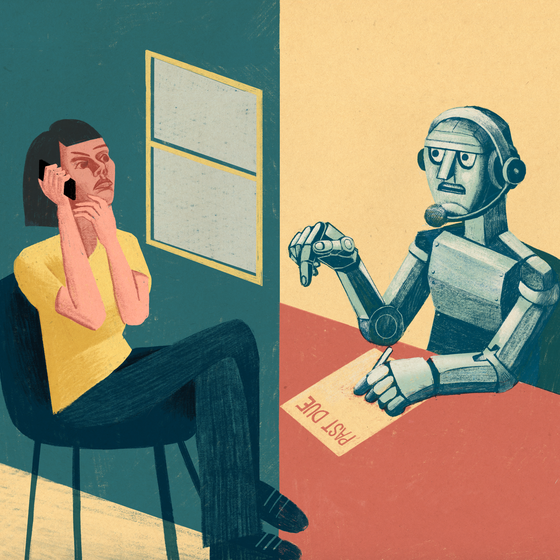Behavioral
Can AI Replace Human Debt Collectors?
New research co-authored by Yale SOM Professor James Choi finds that people are less likely to follow through on a commitment to repay a debt if it’s made to an AI agent. The finding hints at one area where humans may always retain an advantage over bots.

The Pleasure of Guilt
Guilt may be a key mechanism for enhancing pleasure, according to new research co-authored by Professor Ravi Dhar.
Classroom Insights: Risk Aversion in Decision Making
Nathan Novemsky, professor of marketing, explains to his Problem Framing course how Prospect Theory–the series of ideas and experimental observations that lie at the root of behavioral economics–elucidates one of the psychological biases that can cause people to approach the same problem in very different ways. Understanding these biases can help one see problems more clearly.
Is economic inequality too big a risk?
Does economic inequality provide incentives for success? Does it introduce instability into the financial system? A political scientist and an economist discuss how inequality affects government, markets, and the risks faced by ordinary people.
Do we listen to opinion leaders?
Are there leaders in everyday life? A long body of literature argues that a small number of individuals have an outsize influence on what the rest of us buy, wear, and consume. But marketing professionals and scholars have been debating how to make use of these opinion leaders.
Does cheating matter?
Behavioral economist Dan Ariely's research has found that the cumulative impact of various forms of cheating has a significant effect on the world economy. His experiments show that people, across a wide range of situations, will cheat just a little bit, even when given the opportunity to get away with more; but reminders of core values can reduce cheating. He discusses the implications of these ideas for managers and professional organizations.
What is neuroeconomics?
The new field of neuroeconomics looks at how economic decision-making actually happens inside the brain. Jonathan Cohen, co-director of the Princeton Neuroscience Institute at Princeton University, describes insights that are emerging from the collaborative work of neuroscientists, psychologists, and economists.
How Do We Improve Retirement Saving?
James Choi describes his research into one simple way to raise participation rates in 401k plans: change the default.
Is optimism rational?
We learn in kindergarten to look on the bright side. But is optimism good for us? And do we adjust our sunny expectations based on our experiences? Cade Massey, an assistant professor of organizational behavior at Yale SOM, discusses his work.
What was Polaroid thinking?
Polaroid went from ubiquity to obsolescence as digital photography replaced the print. But as early as the 1960s, Polaroid had been doing research into digital imaging. Did mistaken assumptions keep the company from making the transition to the digital world?
Is risk rational?
Misunderstanding of risk was a major factor in the subprime crisis and ensuing recession. Andrew Lo argues that one has to look at both logical and emotional parts of the brain to grasp how people respond to financial risk.